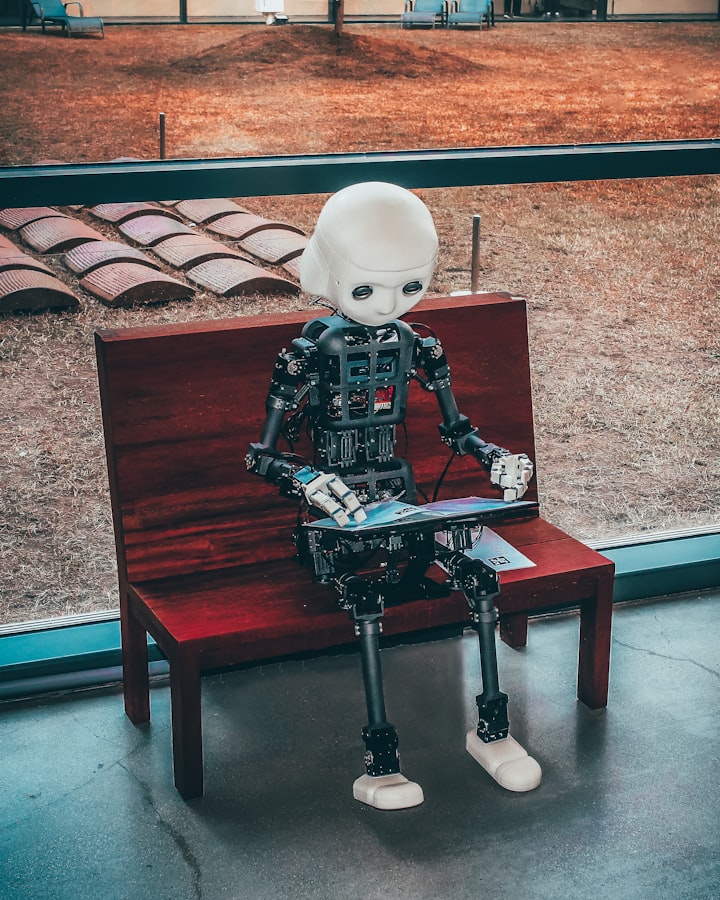AI vs. Human Intelligence: Unraveling the Debate and Addressing Potential Risks
Comparing the Cognitive Prowess of AI and Humans while Examining the Potential Risks to Society

Introduction
Artificial Intelligence (AI) has taken the world by storm, revolutionizing industries and transforming the way we live. As AI capabilities continue to advance, questions regarding its intelligence compared to humans and potential threats to humanity have arisen. In this article, we delve into the complexities of AI intelligence and human cognition, evaluating their respective strengths and limitations. Additionally, we address the pressing concern of whether AI poses a threat to humanity and explore the measures being taken to ensure its responsible development.
AI vs. Human Intelligence: Unraveling the Debate
Comparing AI intelligence to human intelligence is a multifaceted endeavor. AI systems, driven by complex algorithms and vast datasets, excel in specific tasks such as data analysis, pattern recognition, and language processing. They can outperform humans in terms of speed, precision, and memory recall. However, AI is limited by its lack of consciousness, emotions, and creative thinking, which define human intelligence.
Human intelligence, on the other hand, is characterized by adaptability, emotional intelligence, creativity, and critical thinking. Humans possess the ability to understand complex contexts, exercise judgment, and make decisions that go beyond data-driven parameters. Our consciousness and self-awareness grant us the capacity for empathy, moral reasoning, and ethical judgment - aspects AI is yet to replicate.
The Potential Threat of AI to Humanity
The question of whether AI poses a threat to humanity has become a focal point of discussion and concern. While AI itself lacks conscious intentions, the rapid evolution of autonomous systems raises legitimate concerns about unintended consequences and potential misuse.
Job Displacement: As AI systems become more capable, there are growing concerns about job displacement, leading to widespread unemployment and economic instability.
Bias and Discrimination: AI algorithms are only as unbiased as the data they are trained on. If trained on biased datasets, AI can perpetuate discrimination, leading to unfair and harmful outcomes.
Autonomous Weapons: The development of autonomous weapons raises ethical dilemmas, as machines could make life-or-death decisions without human intervention, potentially leading to unintended escalations and warfare.
Control and Accountability: As AI becomes more sophisticated, questions of control and accountability arise. Ensuring AI systems act ethically and within prescribed parameters is a challenge that requires careful oversight.
Ensuring Ethical AI Development
Recognizing the potential risks, experts and policymakers are actively working to address AI's challenges and ensure its responsible development. Key measures include:
Ethical Frameworks: Establishing clear ethical frameworks and guidelines for the development and deployment of AI systems, with a focus on transparency, fairness, and accountability.
Regulation and Governance: Policymakers are exploring regulations to mitigate risks, ensure privacy protection, and hold developers accountable for AI technologies.
AI Safety Research: Researchers are investigating ways to develop AI systems that understand human values and avoid harmful actions, known as "value alignment."
Human-in-the-Loop Approach: Incorporating human oversight in AI systems to ensure critical decisions remain under human control and judgment.
Collaborative Efforts: Encouraging international collaboration to set global standards for AI development, ensuring consistency and responsible practices across borders.
Conclusion
The comparison of AI intelligence and human cognition is nuanced, with each possessing unique strengths and limitations. While AI systems excel in specific tasks and may outperform humans in speed and precision, human intelligence encompasses emotional understanding, creativity, and ethical judgment.
The concern of AI becoming a threat to humanity is rooted in potential risks such as job displacement, bias, and autonomous weapons. However, efforts are underway to ensure responsible AI development through ethical frameworks, regulations, and research.
In the ongoing evolution of AI, it is crucial to strike a balance between technological advancement and human welfare. By fostering collaborative efforts, embracing ethical practices, and prioritizing human values, we can harness the potential of AI while safeguarding humanity from any unintended adverse effects. Responsible development and thoughtful integration of AI into society can pave the way for a future where humans and AI coexist, enhancing the quality of life and advancing our collective progress.






Comments
There are no comments for this story
Be the first to respond and start the conversation.